Autothermal reforming at low steam-to-carbon ratio
The majority of the world’s syngas-producing plants apply steam methane reforming, with the specific type of reforming technology depending on application and operating conditions. Topsoe offers several types of reforming technologies and has decades of experience ensuring that the optimal design is selected for each individual project.
Topsoe’s SynCOR™ autothermal reforming technology (previously called ATR) is often the preferred technology in many of today’s world-scale projects because it enhances economy of scale by maximizing single-line capacity while significantly reducing capital and operating costs. Topsoe’s SynCOR™ process not only offers the market’s lowest cost of ownership but is also supported by 70 years of proven reliability and safe, continuous operation.
A sound investment
Watch our video to explore the applications and benefits of the SynCOR™ process.
Main benefits
-
High single-line capacity
-
Economy of scale
-
OPEX savings
-
Lower emissions
-
Exceeding 99% availability
-
Easy and safe operation
With a SynCOR™ solution, high conversion is achieved with one-step reforming. Other benefits of Topsoe’s SynCOR™ process include smaller footprint and therefore lower capital costs, as well as lower operating costs due to significantly reduced steam-to-carbon (S/C) ratios. SynCOR™ plants operate at a S/C ratio as low as 0.6. Low S/C ratios and high reforming temperatures also enable larger single-train capacities and produce syngas that is characterized by very low methane content, low H2/CO ratios and high CO/CO2 ratios. The syngas produced is well suited for application in ammonia, methanol and gas-to-liquid (GTL) plants, as well as TIGAS™ gasoline plants and syngas hubs. A particular benefit of the higher CO/CO2 ratios in the syngas is the reduction in size of the methanol synthesis section, lowering capital costs even further. A particular benefit for ammonia plants is the reduced steam throughput, which significantly reduces the sizes of equipment and piping, keeping it within standard sizes and lowering CAPEX when scaling up.
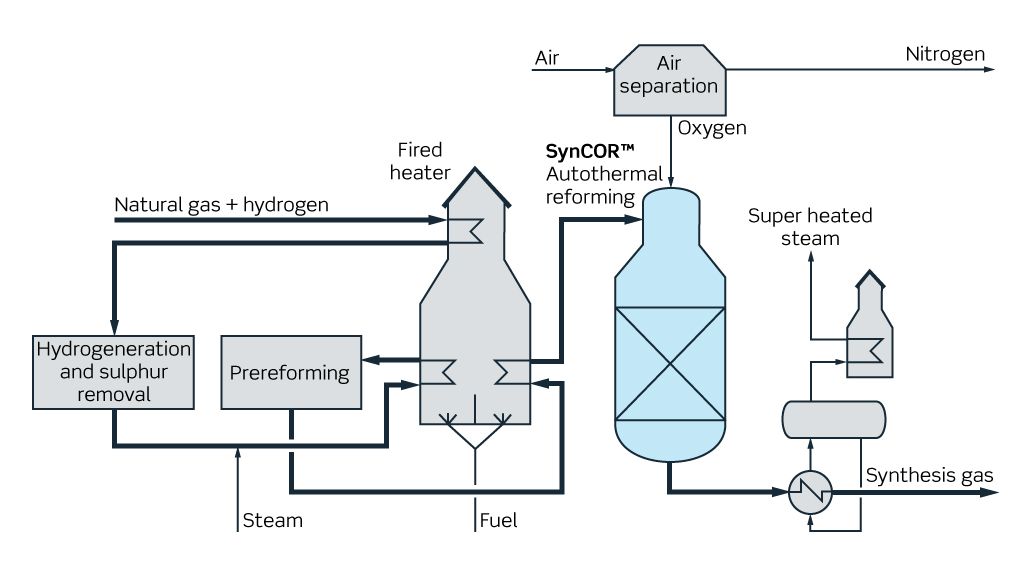
The use of SynCOR™ technology is advantageous because the combustion of feed gas generates heat for the reforming reaction, eliminating the need for supply or dissipation of thermal energy. With a SynCOR™ autothermal reformer, tubular reforming is not necessary – instead, pre-reformed natural gas is sent directly to the autothermal reformer along with oxygen. By eliminating the need for tubular reforming, steam addition can be significantly reduced and energy efficiency is improved.
Autothermal reforming conditions are typically more challenging than those for a conventional oxygen-fired secondary reformer operating at high S/C ratios, which necessitates very robust hardware and catalysts. Topsoe’s state-of-the-art equipment includes a process burner that provides safe operation, long lifetime, centered flame, soot-free combustion and uniform mixing. Our refractory lining is multi-layered to ensure safety and reliability as well as low surface temperatures on the pressure shell. Our target tiles provide high wear resistance and act as a robust top layer. And last but not least, our autothermal reformer catalysts provide long life time, low pressure-drop and high activity as well as other unique attributes that ensure the best possible performance and efficiency of the SynCOR™ unit.
.png)

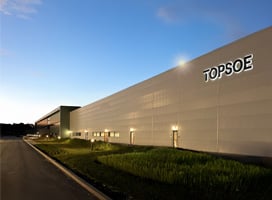
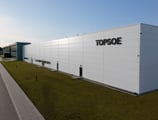
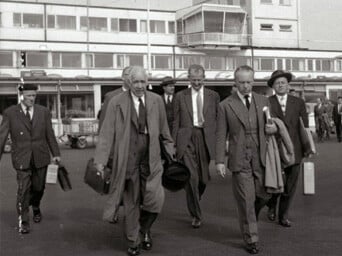

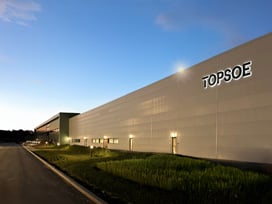

.png?width=1440&height=1248&name=SynCORTM%20-%20Autothermal%20Reformer%20(ATR).png)
![SAF Airplane runway[1]-1 1](https://www.topsoe.com/hs-fs/hubfs/SAF%20Airplane%20runway%5B1%5D-1%201.png?width=800&height=640&name=SAF%20Airplane%20runway%5B1%5D-1%201.png)





